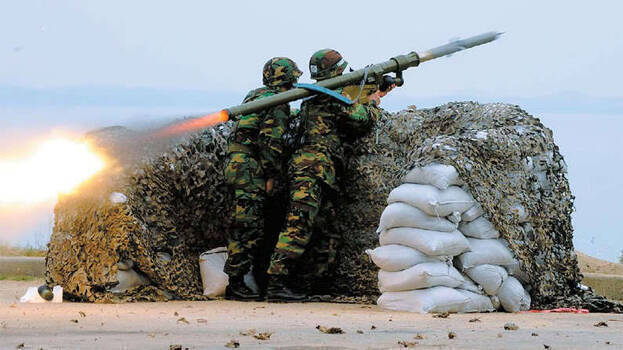

NEW DELHI: Today marks the 25th anniversary of the victory of the Indian Army in Kargil, Kashmir. Prime Minister Narendra Modi inaugurated the 25th anniversary of Kargil War victory in Dras. The country is honouring 527 soldiers who gave their lives to protect the pride of the country and other soldiers who fought bravely. We have heard stories of many heroes who bravely resisted Pakistan's treachery during the Kargil war. Along with that, many unique weapons were used by the Indian army at that time. Today, the force also honors BP Singh, who was a Havildar Major and now an Honorary Captain, when he first got the chance to fire such a missile.
The Soviet-Russian-made 9K38 'Igla'[ missile was first used by India in a war during the Kargil War. Igla is a portable infrared homing surface-to-surface missile. The Igla missile is used for individual or crew operations. These missiles are able to select the target through a thermal locking system and reach it precisely. Igla is a missile that can accurately destroy targets at a distance of 500 meters to six kilometers and at a height of 3.5 kilometers.
In 1972, Igla began developing the short-range manned air defense system (MANPADS) in the former Soviet Union. It is a slightly improved version of the previously existing Strella missile system. Technical problems hindered its development. In 1978, the scheme was bifurcated. That changed with the development of the fully capable Igla missile and the slightly simpler Igla-1 version.
Speaking about the circumstances surrounding the firing of the Igla missile, Honorary Captain BP Singh says: 'On the day of the Kargil war, there was continuous firing from Pakistan. One of our trucks was also fired at on National Highway 1. A soldier was martyred. With this, higher officials gave an order to retaliate.
Three Pakistani posts were under my purview. We received the order at that time. Gods were with us. I had 30 seconds to act. After receiving the thermal signal, I locked on the target and fired the missile. That's how the incident happened. This repulse thus holds a special place in the war history of the Indian Army.'
Honorary Captain BP Singh recounted his experience when he was the special guest at a function in Dras attended by the Prime Minister.